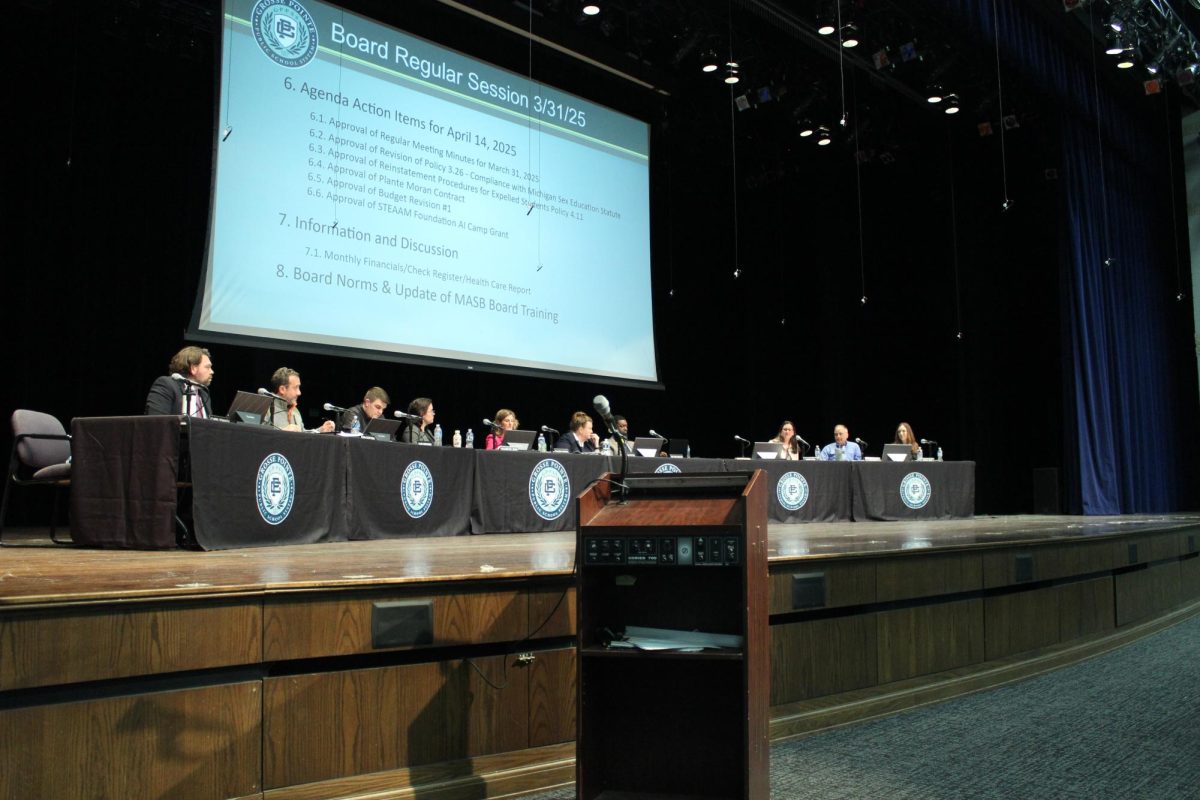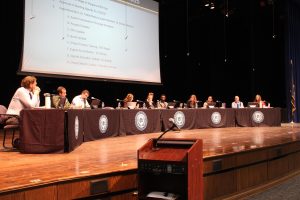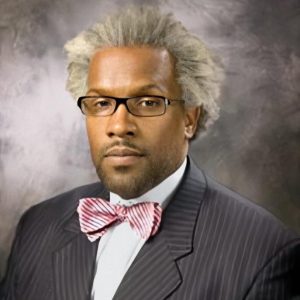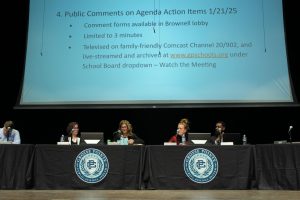Instilling respect onto everyone: discussing harassment, exclusion of special education students
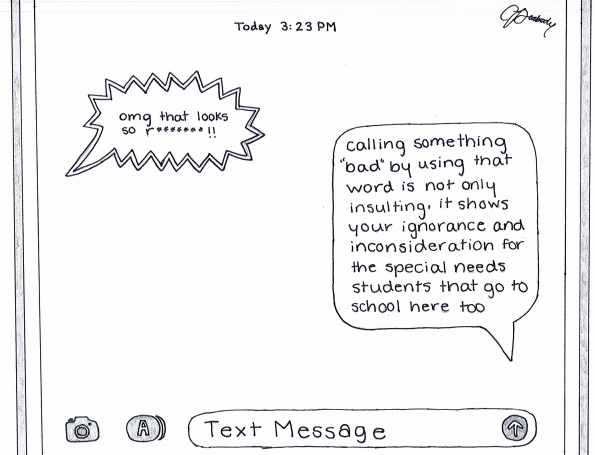
Graphic by Caroline Peabody ’22
October 3, 2019
At The Tower, we strive to include all voices within the school. As the first month of school draws to a close, we believe now is an important time to address the behaviors and relationships of general education students toward special education students.
We believe there are some within the school who are uneducated about special education students and therefore treat them with a lack of respect. Collectively as a staff, we’ve witnessed the following behaviors during our time at South: students mocking and teasing special education students, openly speaking negatively about them in their presence, criticizing someone or something by calling them the ‘r-word’ or ‘austistic’, joking about them becoming school shooters and laughing at them in hallways and in the classroom.
According to special education teacher Amanda Bungard, “(bullying) comes up often from some of the students in the autism classrooms.” They want friends, but often receive fake invitations that don’t come to fruition.
According to Bungard, there have been incidences of bullying in bathrooms and lockers where faculty isn’t present. We’re disgusted by the instigators of these harassments, and see these as pathetic attempts to dehumanize and ridicule a diagnosis no one is in control of.
Bungard does not believe most students mean to hurt special education students, but rather “they just don’t understand that the special ed students don’t get humour the same way that other people get it.” When general education students’ jokes come off as malicious, it pushes special needs students away from feeling supported and liked by their peers.
We at the Tower believe everyone at South must educate themselves and take responsibility for any wrong-doings. Misunderstanding isn’t a justification for disrespect. We believe Ms. Bungard put it best: Just follow the golden rule. Treat everyone with kindness, regardless of race, gender, sexuality, creed or diagnosis. Every little actions can show this: greeting or waving to someone in the hallway, helping them in class or talking with them at free moments. These seemingly fleeting moments help create the bonds special needs students want. We encourage clubs like Peer2Peer that help accomplish this. Even if you’re not in the club you can still make special needs students feel welcome. Even if they aren’t in your classes or extracurriculars, we’re all a part of South and want to feel like it.
We applaud students and faculty for promoting inclusivity through #SouthCares, additions to spirit week, etc. However, we must not forget to uplift our special education students as well. This doesn’t mean only discussing their program and struggles during Autism Awareness Month in April– if we only have this dialogue then, it doesn’t reflect an honest effort to fight prejudices against those with mental diagnoses. Rather, we must maintain the expectations of respect and inclusion all throughout the year in order to truly make South an accepting place for all.

